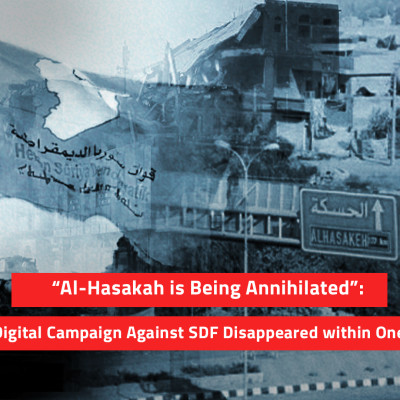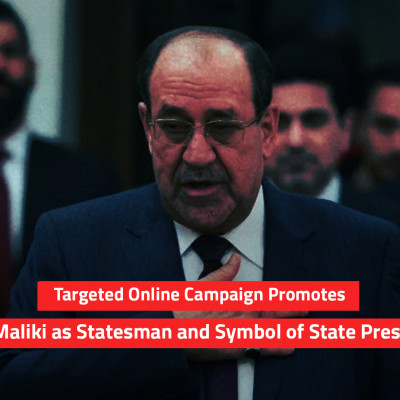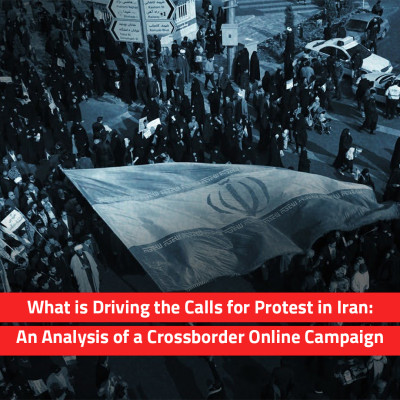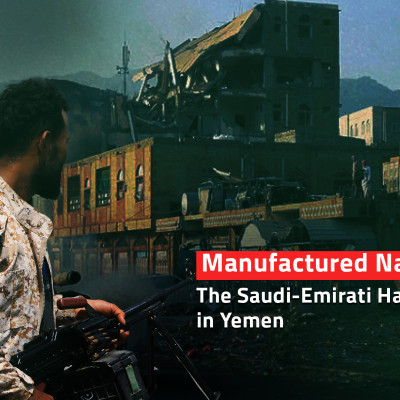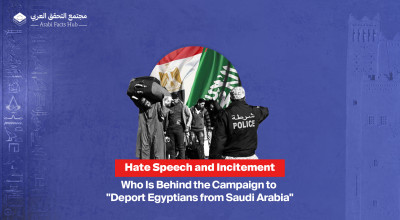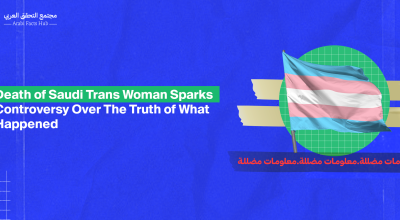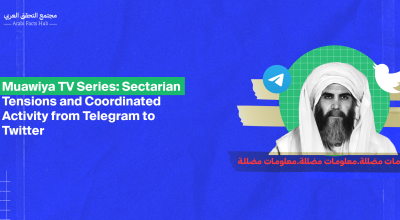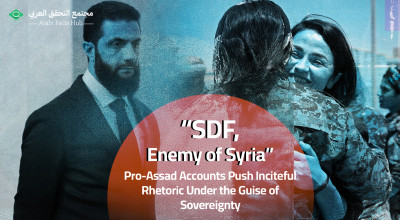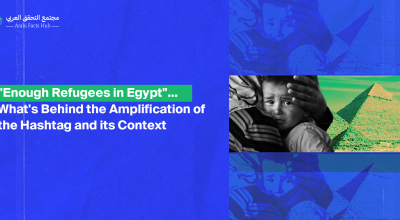Statements by Iran’s Foreign Minister Spark Coordinated Yemeni-Saudi Campaign
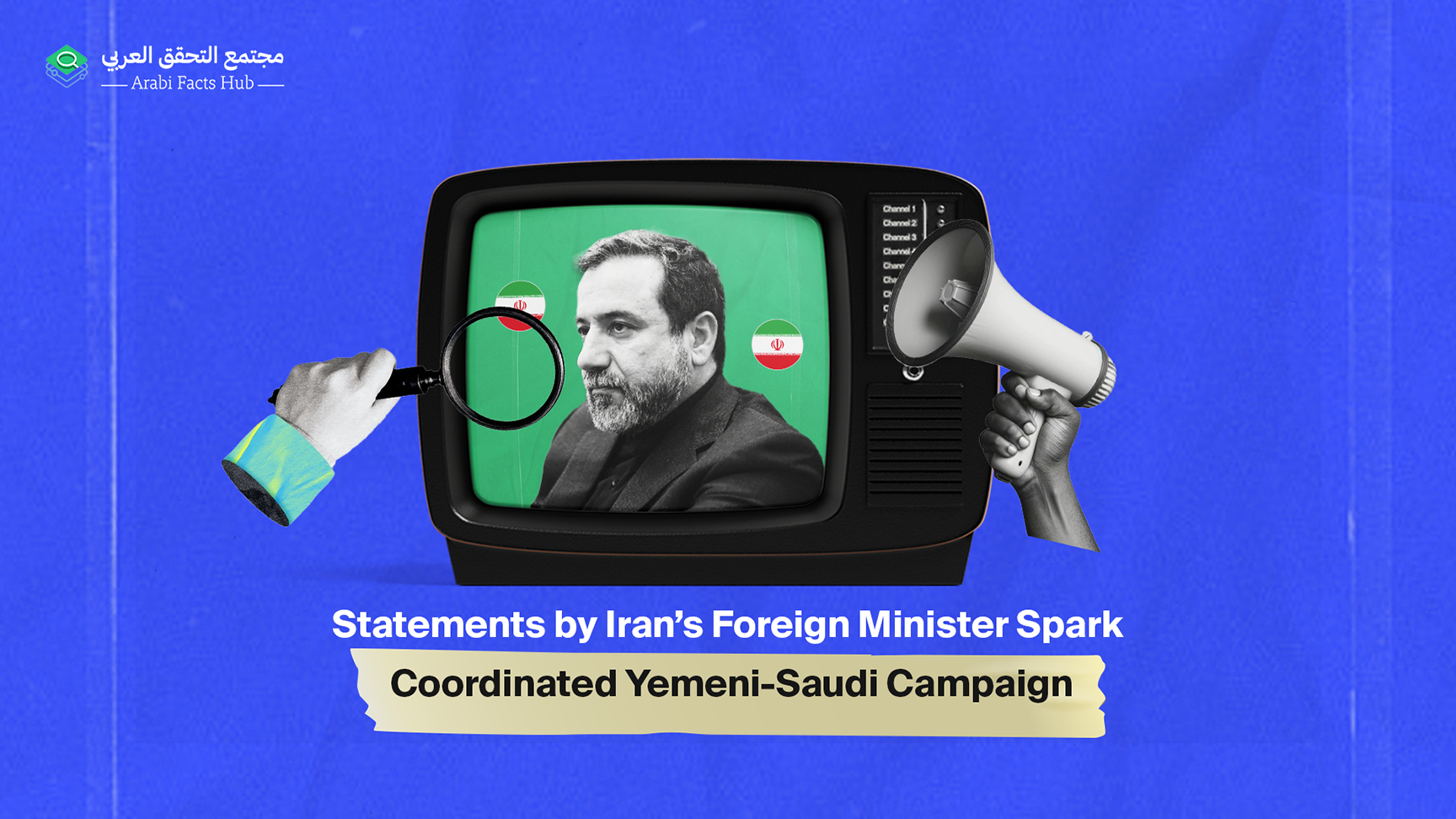
Statements by Iranian Foreign Minister Abbas Araghchi supporting a "one-state solution" have sparked inauthentic activity on social networks, casting doubt on Tehran's political stance on the Palestinian issue.
______________________________________________________________________
In an interview published in Al-Masry Al-Youm on October 19, 2024, Iranian Foreign Minister Abbas Araghchi stated that a two-state solution “would lead to ongoing tensions between the two potential states, thereby prolonging the conflict.” He argued that this solution would create a model for a “Palestinian municipality” or a small state without sovereignty or an army.
He explained, “This is why we should consider a democratic one-state solution (on Palestinian territories) instead of conceding to a two-state solution. However, we ultimately support any decision that the Palestinians make for themselves; we are merely presenting our perspective.”
Following Araghchi's statements, the hashtag #Iran_Sold_Out_Palestine emerged, featuring posts questioning Iran's stance on Palestine.
The hashtag saw over 17,000 posts on X, with a total of 5.435 million views and 62,230 interactions (likes, replies, comments, and shares), according to Meltwater, a leading social media content analysis tool. The hashtag peaked on October 21, 2024, driven by 8,786 posts.

#Iran_Sold_Out_Palestine Hashtag Activity Periods – Meltwater
The Opening Strike Was Yemeni
The hashtag #Iran_Sold_Out_Palestine saw engagement from 10,251 accounts, with Yemeni accounts being among the earliest participants, posting 971 tweets on the hashtag. Our analysis of the content shared by these first tweeters reveals a mix of varying positions, including positive statements about Saudi Arabia and the UAE, critical views against the Iran-backed Houthi group, and notable support for South Yemen's independence. Some of these accounts prominently feature symbols of the Yemeni Republic and South Yemen, alongside frequent posts of images of Presidential Leadership Council head Rashad al-Alimi.
Backed by a large follower base, journalists, activists, and political figures led the Yemeni accounts participating in the campaign, many of whom are known for their involvement in coordinated influence efforts as part of an ongoing information war within the conflict-ridden nation. Several prominent figures in the campaign are linked to decision-making circles, including members of the National Dialogue Conference, the Riyadh Consultations, the Permanent Committee of the General People's Congress (which governed during former President Ali Abdullah Saleh’s era), as well as media advisors who previously served various ministries within the Yemeni government.
Among the most active and influential accounts in the campaign were: @Alyosofi, @nasa909030, @albasam53, @shrafyf, @abdallh_m123a, @AnwarAlashwal4, @mohamed_must7fa, @AHMED_ALSABAI, @algamranym67, @ZAINDHUBAIBI, @AbdullahAEsmail, @atayyh, @almedi2009, @alkumaim_m, @BdalhmydA63581, @maldhabyani.
At 7:02 p.m. Yemen time on October 20, 2024, Yemeni journalist and political analyst Abdulmalik Al Yousefi posted the first tweet under the hashtag #Iran_Sold_Out_Palestine. He wrote, "The masks have fallen. Those who believed a lie in the morning won’t go to bed with it. Iran's foreign minister calls for handing Gaza and the West Bank over to Israel as a prelude to a one-state solution—a move by Iran to absorb pressures and avoid imminent risks threatening the regime's survival in Tehran." Al Yousefi followed up with a second tweet on the hashtag, sharing a screenshot of excerpts from Al-Masry Al-Youm’s interview with Araghchi where he stated, “In exchange for safeguarding the regime from escalating risks.”
Al Yousefi is a frequent guest on Saudi media, with a profile photo showing him during an appearance on Al-Arabiya Al-Hadath. He is also active in supporting and amplifying online campaigns, most recently the hashtag #Iran_Booby_Traps_Yemen, which featured around 6,000 tweets and emerged as the Houthis announced military sea drones.


Yemeni media networks, such as Ejaz Network, also participated in the hashtag campaign. According to Facebook's transparency data, Ejaz manages its social media accounts from Egypt, Yemen, and the UAE. The network was notably active in a campaign against the head of the Al Mahra sit-in committee, Ali Salem Al Huraizi, as reported by Arabi Facts Hub.



Activity on the hashtag extended to other social platforms like Facebook, where the same accounts amplified it, alongside groups with tens of thousands of members, such as "Guards of the Republic Electronic Support Unit" and "Follow Me, I’ll Follow You for Networking and Account Promotion."


Repeated Content and Fake Accounts
For years, Yemen has been a focal point in regional power struggles, and now its online space has become a platform for political clashes, where various powers and their allied local groups voice their positions—even in quieter times of the crisis.
Misinformation campaigns and targeted harassment have become key tools in this landscape, relying on mobilization and digital amplification of specific narratives and messages. The hashtag #Iran_Sold_Out_Palestine showed signs of manipulation of platform policies on “X,” which prohibit coordinated activities and unnatural content amplification. One such indicator was the repeated content within the hashtag. Multiple accounts shared the same Al-Masry Al-Youm posts featuring excerpts from the Iranian foreign minister’s statements.





Certain phrases were repeatedly shared within the hashtag, including those expressing a positive view of Saudi Arabia while criticizing Iran at the same time. You can verify this by searching for these repeated phrases on "X": “The honorable Arab stance adopted by Saudi Arabia in support of the cause,” “Iran led the axis of evil for its interests, using its proxies to implement its project under the banner of Jerusalem and Gaza,” and “Iran knows no loyalty, and the Houthis are its next victim.”



We observed activity on the hashtag from accounts that appear to be either fake or automated, such as @rreyyue66889 and @Wajd523400841. These accounts are heavily focused on the situation in Yemen, engaging in coordinated hashtags and generating a high volume of posts.
For example, the account @rreyyue66889, which has only seven followers and follows no other accounts, has posted 1,104 times since its creation in May 2022, most recently using the hashtag #Iran_sabotages_Yemen. Upon reviewing this account, we noticed that "X" had flagged it with a temporary restriction due to unusual activity—a common measure by the platform often associated with coordinated, non-organic activity.
Similarly, the account @Wajd523400841, created in September 2022, has published 6,072 posts. Its content frequently highlights Saudi efforts and aid initiatives to Yemen, particularly those from the King Salman Humanitarian Aid and Relief Center.


Saudi Accounts
Influential Saudi accounts joined the discussions surrounding the Iranian Foreign Minister’s statements, either by posting on the hashtag or resharing Abbas Araghchi’s remarks. With at least 2,550 posts, Saudi Arabia ranked as the leading geographic location of posts on #Iran_Sold_Out_Palestine, factoring in the large Yemeni community residing in the kingdom. Yemen followed in second place with approximately 1,000 posts.
In contrast, posts with an unknown location made up around 12,000 entries, accounting for nearly two-thirds of the hashtag's activity. This could suggest coordinated efforts and the presence of fake accounts interacting with the hashtag.

According to recent statements from Saudi officials, the Kingdom will not agree to an accord to formalize relations with Israel without a pathway allowing for the establishment of a Palestinian state. This stance contrasts with previous posts by some accounts involved in the campaign. These same accounts had previously engaged in the hashtag #Palestine_Is_Not_My_Cause, which remained active in Saudi online spaces for extended periods, especially amid reports of a potential normalization between the Kingdom and Israel prior to the outbreak of the war on Gaza.






Among these accounts are Saudi Deterrence (s_hm2030@), a member of the Saudi Digital Falcons group responsible for political propaganda campaigns for the Kingdom, Hani Sunitan (hanisunitan@), and others who are accustomed to participating in campaigns defending the position of Saudi officials.
